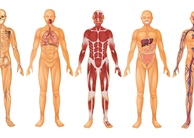Featured Opinion:Asceticism in the Modern World: The Religion of Self-Deprivation
By
2014, Vol. 6 No. 03 | pg. 1/4 | »
IN THIS ARTICLE
KEYWORDS
Among the questions that have attracted my attention during my theological career thus far, nothing has struck me more forcibly than the possibility of asceticism existing in the modern world. Modern asceticism initially appears an absurdity. A non-existent. Something of the past, along with the once thriving Christian religion that laid its foundations. Before, we associated the ascetic with monkish values, the valorisation of chastity, a life of deprivation. Repulsion toward the flesh. Hostility for food. Enmity on all we call pleasure. Yes, modernity is surely an exodus from such; a secular haven for the positive body-image ideal. This, in fact, is something of a contemporary fallacy. Here, I wish to explore the idea that asceticism has not, in fact, been lain to rest, but still flourishes amongst the cultural phenomena of our day. The argument has been sectioned into four areas of discussion. The first involves the place of historical ascetic ideas in everyday consumption; the second, the continually thriving dieting culture and the malevolent eating disorder; the third, the exponential growth of vegetarianism and veganism; and the fourth, the modernist creation of a ‘hedonistic asceticism’. I shall also reflect on these ideas through the work and criticisms of three key thinkers: Caroline Walker Bynum, David Grumett and Friedrich Nietzsche. To DefineFirstly, I find it necessary to define what we here mean by ‘asceticism’. Asceticism is described as: ‘the practicing of strict self-denial of worldly pleasures as a measure of personal and especially spiritual discipline’1. Although this definition is helpful, in this paper we shall be examining asceticism with more specificity, under a topic which concerns every person, every day, in every corner of the world: food. Our asceticism is about the rigid control over the body and all of its facets. It is a retreat from an excess of consumption. But it is also something which can be practiced to excess itself. Here we are concerned with both the impulse to exceed denial, and the want to moderate it. Finally, the abstinence we will see below can be summarised in one, somewhat oxymoronic, statement: a hedonistic asceticism.
A Brief History: Farewell to Food for the SoulAsceticism was once a thriving practice. Monastic law governed the church-peoples with startling rigidity, and even laymen were subject to the complicated world of the feast and the fast. People looked to their stomachs, or rather, what they were putting in them, to prepare themselves for the purity of heaven. Food for the soul, we may call it. But as the Reformation dawned on society, asceticism seemed lost for good. However, it would be a terrible inaccuracy to believe that the Reformation buried the ascetical life forever2. In fact, it could be argued that asceticism is flourishing, in ways never before seen. With the decline in religious belief and practice, ascetic instincts have transformed themselves into their secular doppelgangers. Food for the soul is no longer relevant. It’s all about the body. There is a rapidly declining concern in pleasing God through consumption, but instead, a drive to seek materialistic modes of salvation through the strict control of the body. The Malevolent Eating DisorderOne of these modes can be taken to alarming levels of excess: anorexia. Here referred to as: ‘the malevolent eating disorder’, it is characterized by ‘immoderate food restriction, irrational fear of gaining weight, and distorted body self-perception’3. The anorexia phenomenon has become a central theme in western culture. It is something, in one form or another, that has been present since Ancient Greece; a dualist tradition in which the body is seen as ‘a form of limitation of which we aspire to transcend and free ourselves from’4. Though central to the anorectic’s psychology, these beliefs are also fundamental elements in the tradition of modern Western asceticism. It seems appropriate, then, that the two should be linked. Indeed, evangelical diet and fitness programmes have created a business from thinness, linked it with Christian piety, and hit their own consumer goals, creating a holy trinity of dieting, fit for modernity. Within this system, we also see a secular boom; producing a body that is lithe and lean has become ‘a middle-class mode of enlightenment’5. Yes, anorexia is about achieving domination of the body and the self in the context of a world that feels out of control. But can we definitively call it asceticism? First, some history. There is much debate within academia pertaining to anorexia, and whether it even existed before the modern day. In Caroline Walker Bynum’s work particularly, we see otherwise. We look to explore the historical evidence of abnormal eating patterns as a telescope into the changing, or not changing, forms of asceticism in modernity; whether there is even a place for it. We shall also be focusing on the female demographic, due primarily to modern anorectic statistics leaning in their favour, but also down to lack of scholarly evidence for male anorexia pre-modernity.Continued on Next Page » Suggested Reading from Inquiries Journal
Inquiries Journal provides undergraduate and graduate students around the world a platform for the wide dissemination of academic work over a range of core disciplines. Representing the work of students from hundreds of institutions around the globe, Inquiries Journal's large database of academic articles is completely free. Learn more | Blog | Submit Latest in Opinion |

 An Indian ascetic wearing an iron collar, circa 1870. (Photo by Hulton Archive/Getty Images,
An Indian ascetic wearing an iron collar, circa 1870. (Photo by Hulton Archive/Getty Images, 














